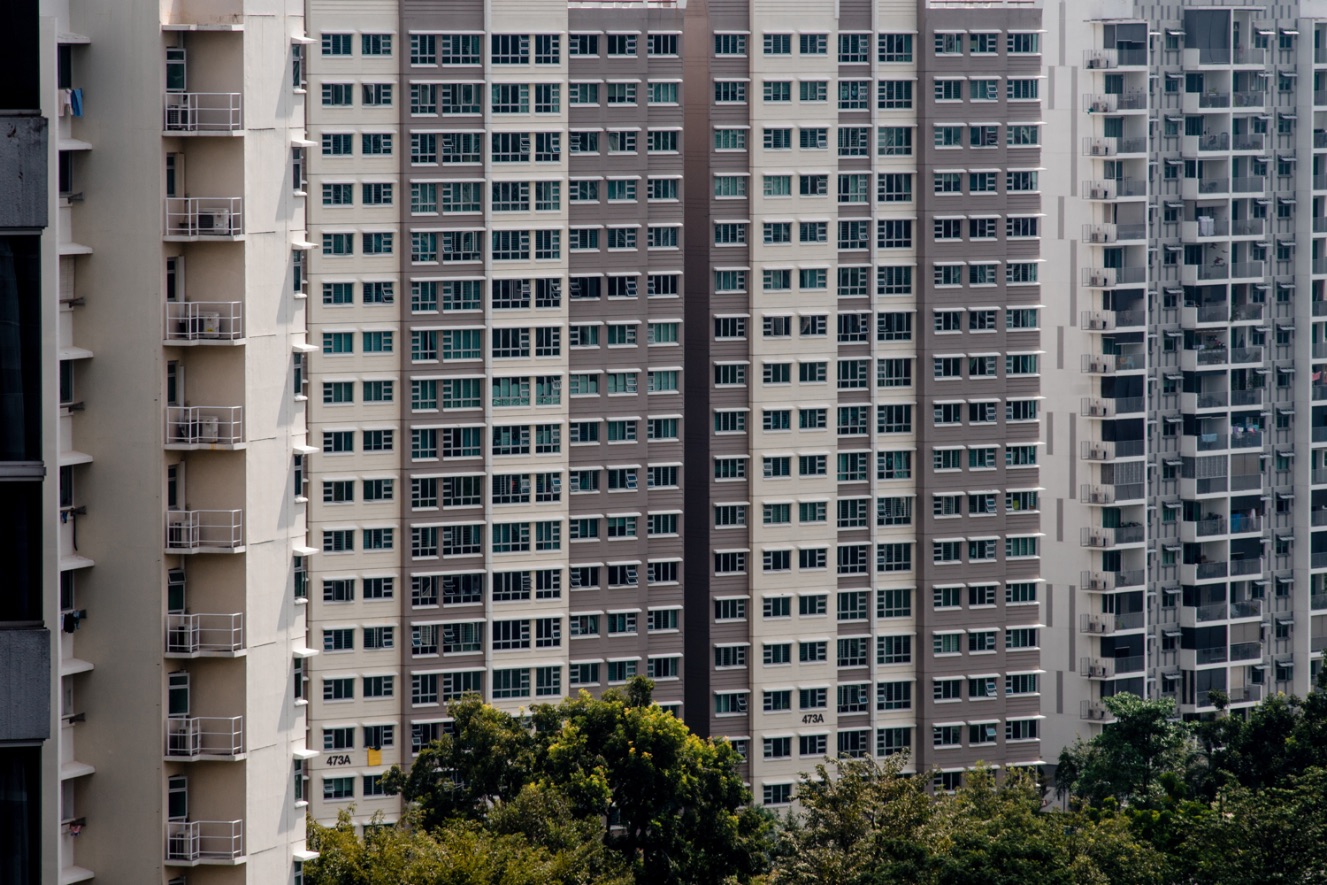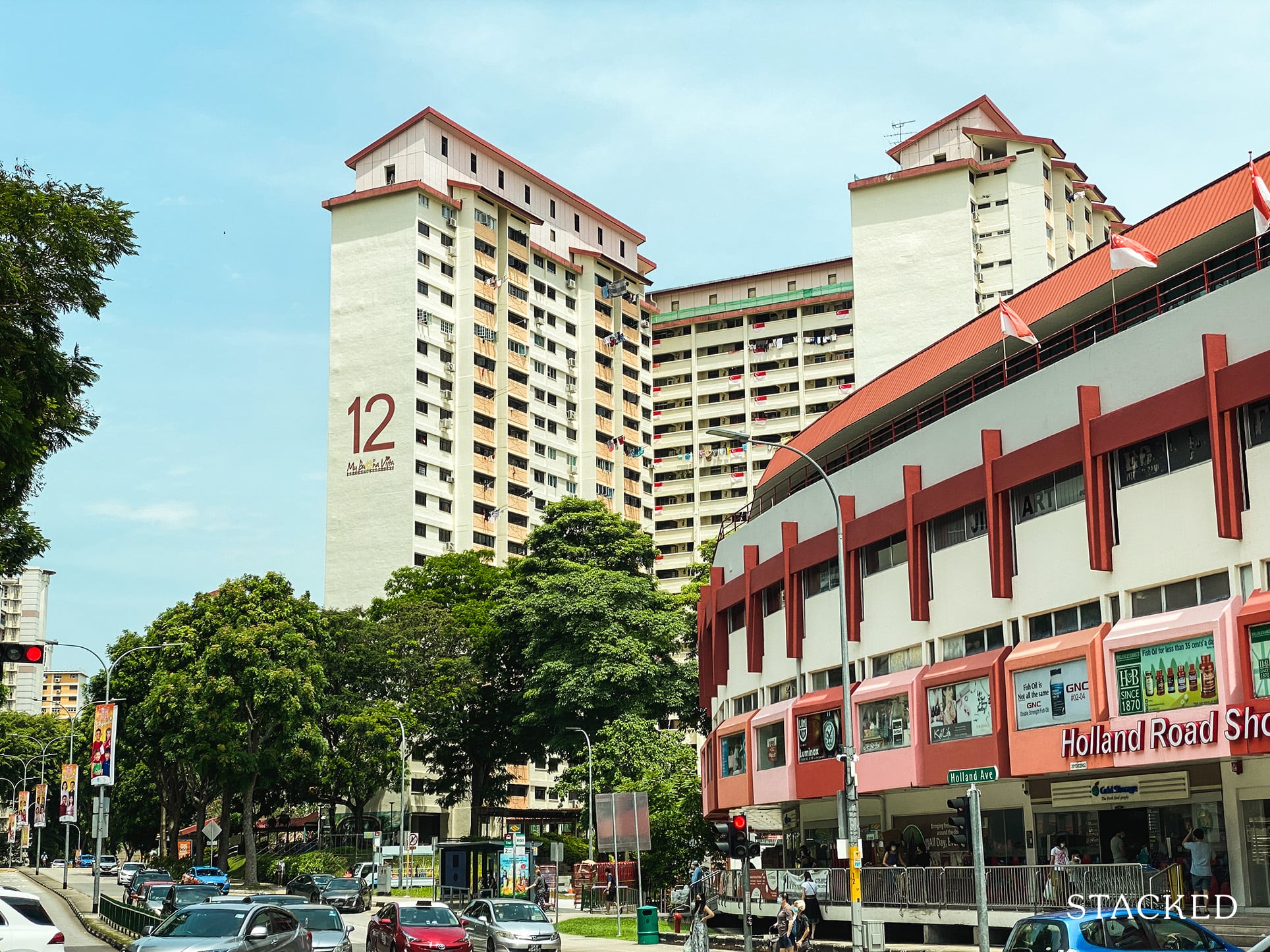The Key Things To Prepare For When Inheriting Property In Singapore
August 14, 2020

Inheriting a property isn’t like inheriting cash, or gold, or an art collection. All those things involve paperwork; but few things involve as much red tape as inheriting a property.
To prepare you for what’s to come, we spoke to Lilian Lim, Managing Partner and Head of Real Estate Practice at Circular Law Chambers LLP:
So many readers write in because they're unsure what to do next, and don't know who to trust.
If this sounds familiar, we offer structured 1-to-1 consultations where we walk through your finances, goals, and market options objectively.
No obligation. Just clarity.
Learn more here.
Key things to note when inheriting a property:
- You’re liable for any outstanding costs on the property
- There are legal fees involved
- You may or may not be able to keep the flat you inherit, based on when it was bought
- Existing Tenancy Agreements stay on
- There’s a big difference in inheriting via a will, versus a trust
- There are future restrictions that could arise from inheriting a property
1. You’re liable for any outstanding costs on the property

Ms. Lim told us that “the person inheriting the home would be responsible for all outstanding maintenance fees, property tax and other outgoings in respect of the property including any outstanding housing loans.”
This is a good reason to purchase insurance policies like a Mortgage Reducing Term Assurance (MRTA) plan; this will pay off your outstanding home loan in the event of your death, so whoever inherits your property won’t also inherit the home loan.
One alarming factor here are the maintenance fees. If unpaid, some MCSTs impose interest rates of around 18 per cent per annum. Given that typical rates amount to $400 per month, this can be significant if the previous owner hasn’t paid in some time.
2. There are legal fees involved
Unfortunately, we can’t give you an exact number, as it’s situational (if your case is more complex, your lawyer may need to put in more hours).
Whether the deceased dies testate (with a will) or intestate (without a will), a lawyer is needed to carry out the grant of probate (if there’s a will), or letter of administration (if there’s no will). This will incur filing fees.
Note, however, that if you inherit the property via trust, you may be spared these costs (see point 7).
The property can only be transferred to you upon proof of claim to the inheritance. You may end up facing additional costs if things don’t go smoothly however, such as:
“There may be encumbrances registered against the inherited property such as a mortgage relating to loans taken by the deceased or a charge by the Management Corporation for unpaid maintenance contributions, both of which would incur legal fees for the discharge before the inherited property may be transferred to the beneficiary.”
You’ll also have to pay registration fees to lodge the various documents, like the application to transfer the property to the beneficiaries pursuant to the grant of probate or letter of administration, with Singapore Land Authority (SLA).
3. You may or may not be able to keep the flat you inherit, based on when it was bought

For starters, if you inherit private property but want to buy a resale flat, you must sell off the inherited private properties within six months of buying your flat.
If you already own a private property when you inherit, then whether you can keep the flat depends on when it was bought:
If the HDB flat was purchased before 30th August 2010, you are allowed to keep both the private property, as well as the inherited HDB flat.
But if the HDB flat was purchased after 30th August 2010, you can’t keep both the flat and your private property. If you choose to keep the flat, you need to sell your private property within six months of taking over the flat.

Property TrendsShould You Buy A Newly MOP-ed Resale HDB Or BTO If You Plan To Upgrade In 5 Years? (We Analyse 14 Years Of Transactions)
by Reuben DhanarajIf you decide to sell the inherited flat, this also has to be done within six months if the Minimum Occupation Period (MOP) has already expired. If the flat hasn’t reached MOP, you need to contact HDB.
(In our experience HDB will usually make an exception in cases of death, but this isn’t guaranteed.)
4. Existing Tenancy Agreements stay on
What happens if you inherit a property that already has tenants in it? Ms. Lim says:
“Legally, a change in the ownership of a property will not affect the tenant’s right to occupy the property as per the original tenancy agreement. The person inheriting the property will have to give effect to the existing tenancy agreement entered into by the previous owner(s).”
This means you should review the Tenancy Agreement (TA) that was signed previously, as you’re now the landlord. It also means you can’t immediately remove the tenants and move in; you’ll have to wait till the end of their lease.
5. There’s a big difference in inheriting via a will, versus a trust
A will is a legal document that sets out the distribution of the owner’s estate upon their death.
A trust, on the other hand, is a legal document whereby the owner entrusts another party (called the trustee) to take care of their assets for certain beneficiaries. It’s set up during the owner’s lifetime, when the assets are transferred to the trust.
Ms. Lim says that:
“When a trust is set up, the trustee takes legal ownership of and manages the assets in the beneficiaries’ best interest. The owner may decide on the terms of the trust and how much control he/she wishes to retain over the trust. However, the beneficial ownership of the assets remains with the beneficiaries.
For instance, they may make specific provisions in the declaration of trust for beneficiaries who are vulnerable, children with special needs or under age or even adults who are spendthrifts”.
In a will, however, the property asset doesn’t get passed on to any third party:
“In a will, the legal and beneficial ownership of the assets remains with the owner until his death and only distributed to the beneficiaries after the death of the testator.
Whereas, the assets are transferred to the trust to be held by the trustees as legal owners immediately upon the creation of the trust during the lifetime of the owner, for the benefit of the beneficiaries.
As assets placed in a trust are not part of a deceased’s estate, probate is not required, while the assets listed in a will to be distributed will require a probate to be obtained before the assets may be transferred or distributed to the beneficiaries.”
In point 2, we mentioned the legal costs involved if probate is required; but this is apparently not needed if the property is handed down via a trust.
In addition:
“While a trust takes effect immediately upon creation, a will takes effect only after the death of the owner.
A trust once created is irrevocable whereas the owner has the freedom of amending or varying the content of the will during the owner’s lifetime so long as they have the mental capacity to do so.”
The trust also covers only assets that are transferred to the trust by the owner, during their lifetime. A will covers all the assets which the owner legally and beneficially owned at the time of their death.
So there are big differences, but we’re not in a position to tell you whether a will or trust would work better for your beneficiaries. You’ll need a lawyer for specific legal advice, so do get in touch with Circular Law Chambers for that.
6. There are future restrictions that could arise from inheriting a property

Even if you don’t have an existing property yet, there are some factors that can impact you in future.
First, inherited property still adds to your property count. That means you’ll have to pay the Additional Buyers Stamp Duty (ABSD) on your second or subsequent properties.
Second, there is a Sellers Stamp Duty (SSD) if you sell a property within three years of acquiring it (12 per cent on the first year, eight per cent on the second year, and four per cent on the third year). Note that this will refer to when the deceased bought the property.
For example, if you inherit the property from someone who bought it just three months ago, then sold it right away, it would incur the 12 per cent SSD.
Finally, Ms. Lim adds the reminder that:
“A person will not be eligible to apply for a new HDB flat if he/she owns a property (i.e. inherited private property) within 30 months before the date of the application, and up to the date of taking possession of the new HDB flat.”
So if you inherit a private property, it can disrupt your plans to get a BTO flat. On the plus side, at least you have a home to wait out the time!
Trying to sell your inherited property, or manage your disrupted buying plans, can be tricky. There is urgency involved, such as in a six-month time limit to dispose of your flat. It can also disrupt your previous plans to buy a property. You can contact us directly on Facebook for help, if you’re facing this.
In the meantime, follow us on Stacked as we examine the intricacies of the Singapore private property market.
At Stacked, we like to look beyond the headlines and surface-level numbers, and focus on how things play out in the real world.
If you’d like to discuss how this applies to your own circumstances, you can reach out for a one-to-one consultation here.
And if you simply have a question or want to share a thought, feel free to write to us at stories@stackedhomes.com — we read every message.
Ryan J. Ong
A seasoned content strategist with over 17 years in the real estate and financial journalism sectors, Ryan has built a reputation for transforming complex industry jargon into accessible knowledge. With a track record of writing and editing for leading financial platforms and publications, Ryan's expertise has been recognised across various media outlets. His role as a former content editor for 99.co and a co-host for CNA 938's Open House programme underscores his commitment to providing valuable insights into the property market.Need help with a property decision?
Speak to our team →Read next from Property Advice

Property Advice We Sold Our EC And Have $2.6M For Our Next Home: Should We Buy A New Condo Or Resale?

Property Advice We Can Buy Two HDBs Today — Is Waiting For An EC A Mistake?

Property Advice I’m 55, Have No Income, And Own A Fully Paid HDB Flat—Can I Still Buy Another One Before Selling?

Property Advice We’re Upgrading From A 5-Room HDB On A Single Income At 43 — Which Condo Is Safer?
Latest Posts

Overseas Property Investing This Singaporean Has Been Building Property In Japan Since 2015 — Here’s What He Says Investors Should Know

Singapore Property News REDAS-NUS Talent Programme Unveiled to Attract More to Join Real Estate Industry

Singapore Property News Three Very Different Singapore Properties Just Hit The Market — And One Is A $1B En Bloc




































6 Comments
Hi Ryan, the part about keeping the inherited HDB should be clarified carefully. Once you inherit the HDB, it is as if you had transferred the HDB to your name. Consequently, if you have a private property, you are required by HDB to stay in your newly inherited HDB until you have cleared the 5 years MOP to rent out your HDB.
This has been clarified to me by the HDB officer as my wife is currently in a possible situation of inheriting a HDB . I have also been told that my family has to be listed as occupiers in the HDB, forming a family nucleus as we are married.
Hi, for the seller’s stamp duty portion, the IRAS website states that
“Exemptions from SSD for Residential Properties under the Stamp Duties Act
9. A person who owns an HDB flat and inherits another HDB flat, is required under the HDB’s regulations to dispose of either the inherited HDB flat or the existing HDB flat. This exemption applies to disposal of flats on or after 18 Dec 2015.
10. A person who owns a non-HDB flat and inherits an HDB flat, is required under the HDB’s regulations to dispose of the inherited HDB flat. This exemption applies to disposal of flats on or after 18 Dec 2015.”
so for your case mention above, the 3 months and selling won’t incure any stamp duty, no?
Hey Ryan & Team,
Lets say in the case that you are holding onto a private property, and you inherit a HDB that was bought before August 2010, must you live in the HDB? Or am I able to still live in my private house while i rent out the HDB?
Cheers,
AK
Hi, Ryan!
I am currently making a research paper to compare the process involved in the transfer of ownership of land acquired through inheritance in the Philippines with that of Singapore. Please share with me any sort of information that may help me with this undertaking. Thanks and please stay safe.